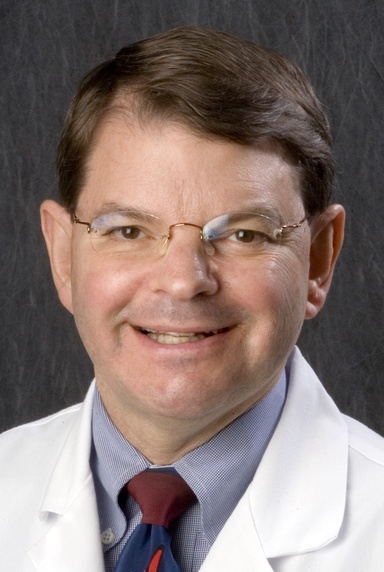The Iowa Cochlear Implant Clinical Research Center (ICICRC) at the University of Iowa Roy J. and Lucille A. Carver College of Medicine has received its fifth consecutive grant renewal from the National Institute on Deafness and Other Communication Disorders, part of the National Institutes of Health (NIH). The innovative and interdisciplinary research supported by this long-running grant has made the ICICRC one of the world's premier centers for cochlear implant clinical research.
The five-year, $11 million grant renewal will fund ongoing basic research, clinical trials, and clinical outcomes research on cochlear implants in children and adults by UI researchers in the Carver College of Medicine, the College of Liberal Arts and Sciences, and the College of Public Health.

The center was established in 1985 when cochlear implants first became available and is directed by Bruce Gantz, M.D., the Brian F. McCabe Distinguished Chair and UI professor and head of otolaryngology-head and neck surgery. Richard Tyler, Ph.D., UI professor of otolaryngology-head and neck surgery and communication sciences and disorders, and Marlan Hansen, M.D., associate professor of otolaryngology-head and neck surgery, are the center's co-directors.
"The long-term NIH funding, now totaling $49 million over 30 years, has allowed ICICRC researchers to translate basic research on the auditory system into new cochlear implant technologies that improve speech perception for adults who have become deaf as well as infants who are born deaf," Gantz says.
The new funding will support four main projects:
- Acoustic plus Electric Hearing, led by Christopher Turner, Ph.D., professor of communication sciences and disorders.
- Speech and Language Outcomes in Children, led by Bruce Tomblin, Ph.D., professor of communication sciences and disorders, Camille Dunn, Ph.D., UI research scientist, and Beth Walker, UI research assistant.
- Speech and Language Processing, led by Karen Iler Kirk, Ph.D., professor of communication sciences and disorders, and Bob McMurray, Ph.D., associate professor of psychology.
- Electrophysiology, led by Paul Abbas, Ph.D., professor of communication sciences and disorders, and Carolyn Brown, Ph.D., professor of communication sciences and disorders.
A major focus of research at the center is to advance the technology previously developed at the UI, which produced the "hybrid" cochlear implant. Compared to the traditional cochlear implant, the hybrid implant has a shorter, hearing-preserving electrode.
"We believe that hearing-preservation electrodes will improve outcomes because they allow users to combine electric auditory stimulation with any residual natural acoustic hearing," Gantz says. "Our overarching goal is to examine how this hybrid approach to speech processing might benefit new populations of adults and children."
175 patients have received these new cochlear implants nationwide; 46 have had the operation at UI Hospitals and Clinics.